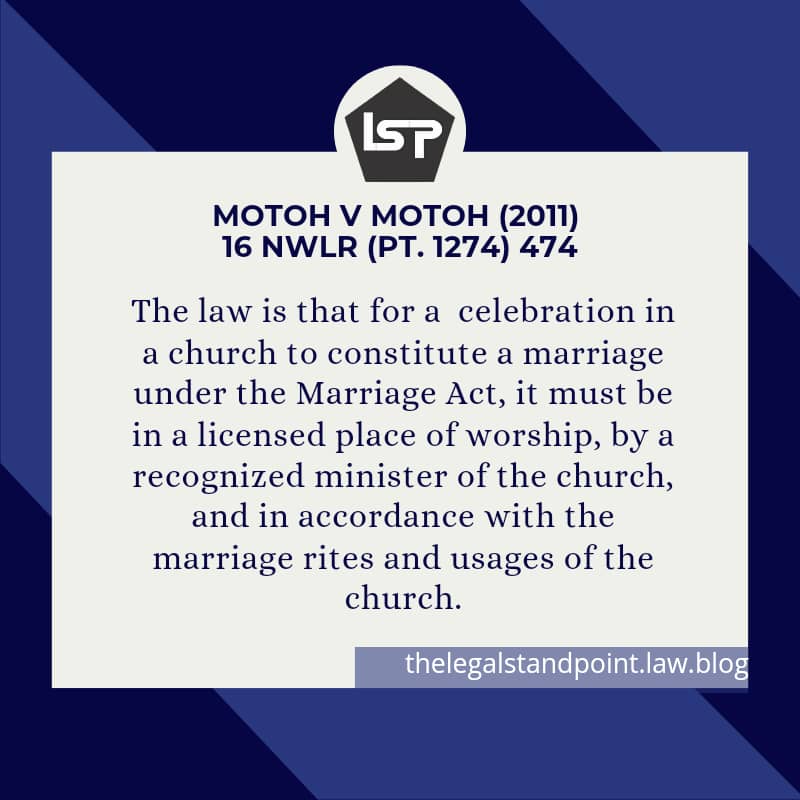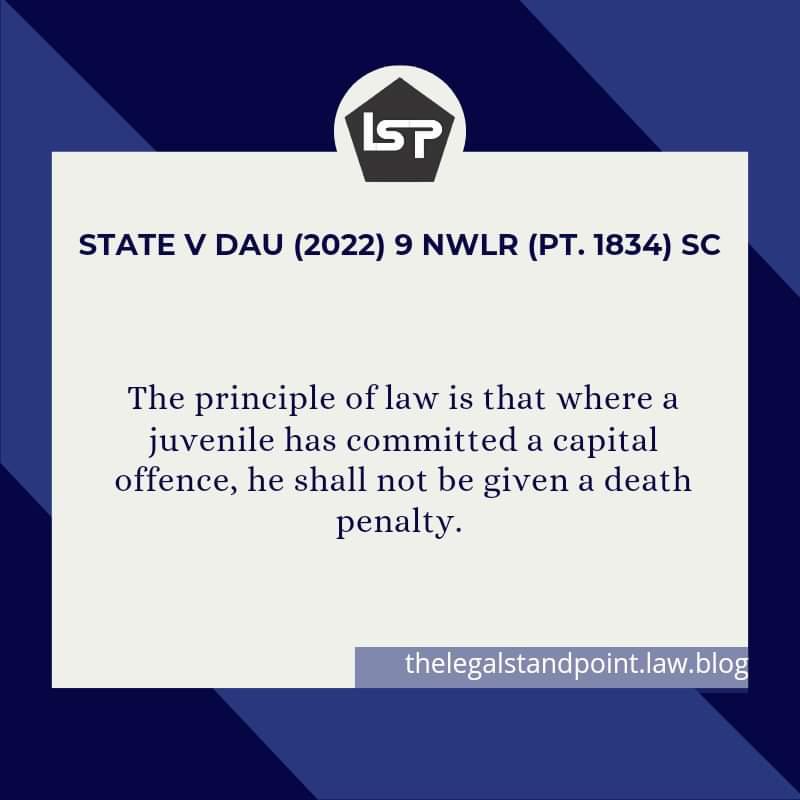
On a scale of one to ten, there is a huge possibility that you have witnessed a church marriage before. Or if you haven’t, you have heard it somewhere before now. Today’s gist is to examine the concept of a church marriage. What exactly is church marriage? Is it recognized under the law or is it a term that owes its usage to either convenience or ignorance?
The term Church Marriage usually arises when statutory marriage is considered. A statutory marriage is a voluntary union for life of one man and one woman to the exclusion of others. This form of marriage is regulated by the Marriage Act and the Matrimonial Causes Act. It is that type of marriage many Nigerians call Court marriage. As held in Motoh v Motoh (2011) 16 NWLR (Pt. 1274) 486, this type of marriage may be celebrated in one of these three ways:
(a)normal registry marriages;
(b)marriages by special licence;
(c) marriages in places of worship licensed for that purpose under section 6 of the Marriage Act.
It is pertinent to state that these three ways cannot exist cumulatively. As such, when couples visit the registry in the morning to celebrate their marriage, coming to church some other time is a mere formality and its absence will not invalidate the marriage celebration. It’s just a matter of norms and practices.
In relation to the third way, marriages can be celebrated in churches and such a marriage celebration will have the same effect as the one celebrated in the registry by the registrar. However, it is pertinent to state that not every church in Nigeria can validly celebrate a marriage. For such a celebration to be valid, the church must be a licensed place of worship.
For a celebration of marriage in a church to be valid, the requirements under Section 21 of the Marriage Act must be followed. In Ijioma v Ijioma (2009) 12 NWLR (Pt. 1156) 593, the Court of Appeal listed the requirements as follows:
- The marriage must be celebrated with open doors between 8am to 6pm in the presence of at least two witnesses besides the officiating priest
- Such celebration must be in accordance with the marriage rites and usages of the church and must be done by a recognized minister of the Church denomination or body to which such place of worship belongs. A celebration of a church marriage by a minister of another church makes the whole marriage null and void. For instance, it is contrary to law if a RCCG Pastor solemnises a marriage in a licensed Deeper Life church. It’s a marriage not the naming of a child.
Based on these requirements, once a church is not a licensed place of worship, any celebration of marriage and production of a marriage certificate issued will not be recognized in law as the marriage will be deemed void. At best, such a marriage will be described as a mere church blessing. Obiekwe v. Obiekwe (1963) 7 ENLR 196. Nwangwa v. Ubani (1997) 10 NWLR (Pt. 526) 559. And it’s immaterial that the celebration was well conducted. It’s the license that enables the church, not its aesthetic architectural design or size of the church.
In conclusion, church marriage is not legally one of the types of marriage in Nigeria. The term is just conveniently used to describe one of the places in which a statutory marriage can be celebrated. For a church to receive a license of celebration, certain procedures must be fulfilled. Once the license is gotten, then the celebration must compile with the provision of the law regulating it. If not, the celebration will be seen as a mere church blessing having no legal effect.
Thank you for reading. See you next week👍


